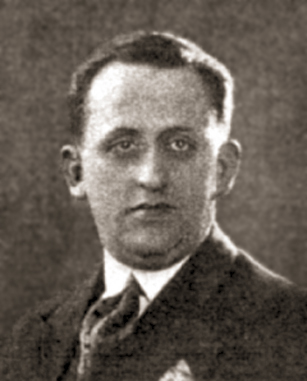Born on 7 February 1896 in Nowogródek, Jakub Kagan became famous as an outstanding Polish composer and pianist of Jewish origin. His life was marked not only by a great passion for music, but also by his struggle to defend Polish independence.
He completed his musical education at the Warsaw Music Institute and later joined the Association of Polish Composers. In 1920, Kagan took part in the Polish-Bolshevik war, participating in the battles near Radzymin on the outskirts of Warsaw. The attack by Bolshevik Russia came just after Poland regained its independence in 1918 after 123 years of occupation.
After the war, victorious for the Poles, a new chapter in his musical career began for Kagan. He assembled Kagan’s Jazz Band. This band quickly became popular, performing at operettas, cabarets, and prestigious hotels, including the Bristol Hotel in Warsaw.
Kagan gained fame not only as a bandleader, but also as a composer, and his first significant work, the tango ‘Golden Panther’, premiered in 1929 in Żegiestów. The piece quickly became a hit, and its popularity reached Andrzej Włast, director of the Warsaw revue “Sea Eye”. Soon “Golden Panther” became part of the revue “Thousand Beautiful Girls”, with which Kagan’s Jazz Band went on tour in Germany, Austria, and Hungary.
Creating songs for stars such as Hanka Ordonówna and Stefan Witas, Kagan became one of the most recognisable composers in Poland. His successes allowed him to lead a prosperous life. He regularly gave concerts with his band in the most elegant venues in the country.
In the 1930s, Kagan took up the position of director of the Cristall-Electro recording studio and director of musical performances at the Colosseum theatre in Warsaw. However, the outbreak of World War II, unleashed on 1 September 1939 with the Third Reich’s attack on Poland, dramatically changed his life. In 1940, together with other Jews, he was resettled in the Warsaw Ghetto created by the Germans. Here, to survive, he played the piano at the Melody Palace Theatre and the Splendid Restaurant.
Unfortunately, Kagan’s fate ended tragically. He probably died in 1942, murdered by the Germans, and the circumstances of his death and place of burial remain unknown.





